New Factsheet: #17 Understanding Compostable Plastics
July 12, 2017
#17 Understanding Compostable Plastics
Posted in Blog, Events, Featured, NewsJuly 12, 2017
#17 Understanding Compostable Plastics
Posted in Blog, Events, Featured, NewsJune 7, 2017
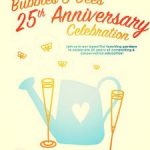
Bubbles and Bees is the Compost Education Centre’s 25th Anniversary party, so come on down and help us celebrate 25 years of composting and conservation education!
Discover how the Compost Education Centre has evolved over a quarter of a century during our open-house style, family friendly, free event, which will feature musical entertainment, face painting and local wine and beer sampling by donation.
Posted in Events, Featured, NewsMay 17, 2017
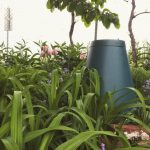
Due to manufacturing price increases, our Green Cone Digester price will rise on June 1st to $180.00. We currently have 20 Green Cones in stock at our old price, $165.00, or for members, $148.50 so get ’em while you can!
Thank you so much for your continued to support of the CEC and for your understanding, please feel free to email us at [email protected], if you have any questions.
Posted in Blog, Featured, News
May 5, 2017
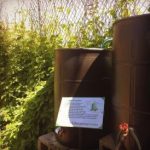
Spring is the perfect time to be thinking about the best ways to conserve water for the dry summer months. To assist you in ideas around how to construct efficient systems that store our abundance of spring and fall rain, the CEC has created a new factsheet that spans a range of rainwater harvesting systems, from cisterns, to rain gardens, to bioswales. #16 Rainwater Harvesting Factsheet
Posted in Blog, Featured, NewsApril 21, 2017
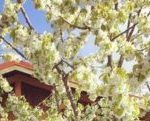
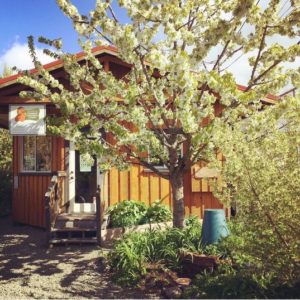 Please join us for our Annual General Meeting hosted in the CEC’S Straw Bale, located in the heart of Fernwood at 1216 North Park Street. The AGM will take place from 1:00-3:00pm on Saturday, April 29th. Together we will review the past year, look to our plans for the new year, share food, and learn.
Please join us for our Annual General Meeting hosted in the CEC’S Straw Bale, located in the heart of Fernwood at 1216 North Park Street. The AGM will take place from 1:00-3:00pm on Saturday, April 29th. Together we will review the past year, look to our plans for the new year, share food, and learn.
AGM Attendance Highlights:
Everyone is welcome to attend the AGM and attendees will be entered into a draw to win an awesome secret sur-prize*. Members in good standing with the Compost Education Centre have voting rights at the meeting. We look forward to your presence because your input is vital!
*Must attend the AGM in its entirety to be eligible for the free workshop and prize draw.
Annual Report and Financials
CEC Annual Report AGM 2016 Final
Posted in Blog, Events, News
April 21, 2017
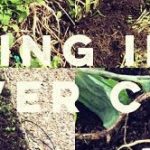
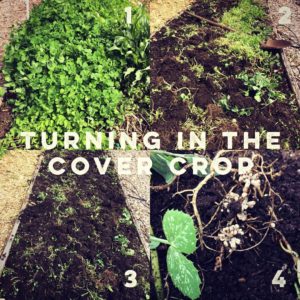 It’sspringit’sspringit’sspring! FINALLY.
It’sspringit’sspringit’sspring! FINALLY.
The cover crop of crimson clover and winter field pea that I sowed the veggie beds with last fall has also been enjoying the warmer weather in a big way. Before I knew it, it had put on 6 inches of new growth and it was time to shear, compost and turn in in preparation for planting season.
Generally, you want to get this done a few weeks before planting anything in the bed. This allows the roots of the cover crop to die, releasing their fixed nitrogen back into the soil, which can then be taken up by your transplants. A side benefit is that it turns pest cocoons and larvae up to the surface where they can be gobbled up by birds, other insects or killed off by the weather.
First, I shear the tops off the plants and toss them in my compost pile. There’s a lot of green material there, so I tend to make a big hot compost.
My shovel strategy:
Many use tillers to turn in cover crops, and this is necessary if you’ve used a more robust crop such as winter rye. Because I choose more tender crops, I use a shovel and chop two rows down the bed, then chop perpendicular to the rows to create a kind of grid over the bed. This allows you to lift chunks of the cover crop and flip them completely over. Once this is complete, I gently chop my way through the whole bed to cut the roots up and ensure the cover crop dies off in time for planting.
As you go, keep an eye out for the tell-tale root nodules that show you how hard your nitrogen-fixing cover crop (i.e. legumes such as crimson clover or winter field pea) has been working for you. As the plants die, this nitrogen is returned to the soil.
Want to know more about the benefits of cover cropping? Head over to our Facebook, Instagram, or Twitter and leave us a comment that says “Tell me more!”.
Posted in Blog, Featured, News
April 13, 2017
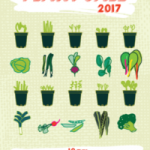
The Compost Education Centre (CEC) is hosting our 15th annual all-organic spring plant sale! The event is on Saturday May 13th, 10am-2pm at the CEC demonstration site at 1216 North Park Street. The Spring Organic Plant Sale features local farmers offering a wide variety of organically grown vegetable, flower and herb seedlings to get you off to a successful start this growing season.
What you can look forward to:
• The largest selection of organically grown heirloom tomato varieties all in one place for easy shopping
• Organically grown vegetable starts from arugula to zucchini
• Native plants for your low maintenance garden
• Perennial edibles like berry bushes and other fruiting shrubs
• Medicinal herbs like English lavender, chamomile and yarrow
• Culinary herbs like Genovese basil, dill and chives
• Companion plants like marigolds, sweet cicely and comfrey
• Live music!
Vendors this year will include Saanich Organics, New Mountain Farm, Mason Street Farm, Metchosin Farm, Fiddlehead Farm, TreeEater Nursery and Ravensong Seeds/Miss Mullein’s Herbals.
The Compost Education Centre is located on unceded and occupied Indigenous territories, specifically the land of the Lekwungen speaking people—the Esquimalt and Songhees Nations. These nations are two of many, made up of individuals who have lived within the porous boundaries of what is considered Coast Salish, Nuu-Chah-Nulth and Kwakwa’wakw Territory (Vancouver Island) since time immemorial. At the CEC we seek to respect, honour and continually grow our own understandings of Indigenous rights and history, and to fulfill our responsibilities as settlers, who live and work directly with the land and its complex, vital ecologies and our diverse, evolving communities.
Posted in Events, Featured, News